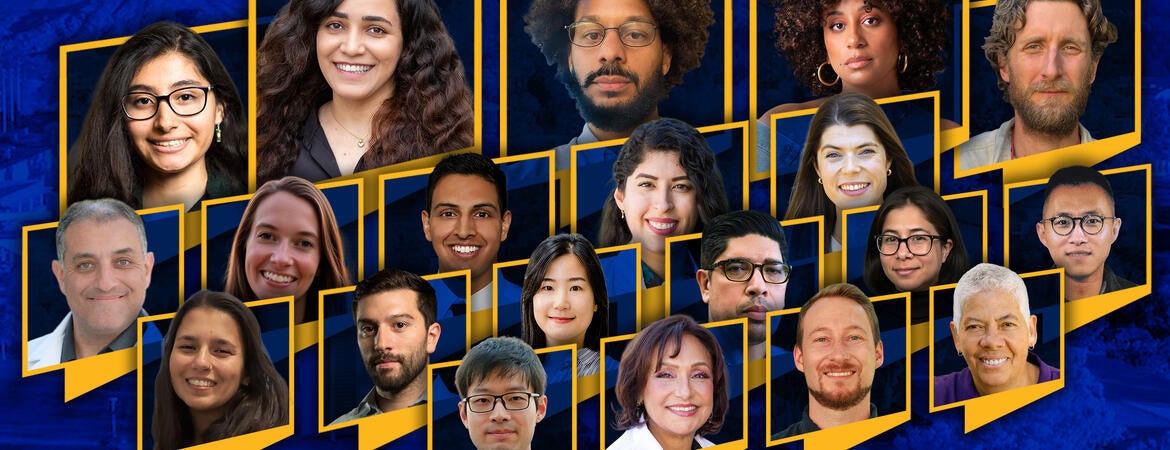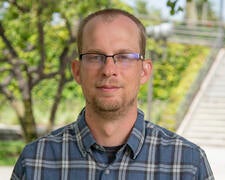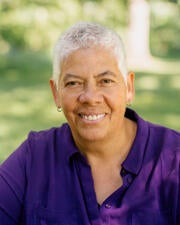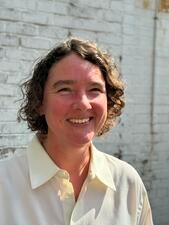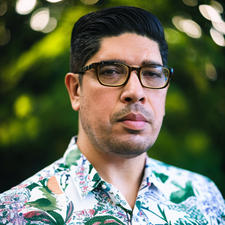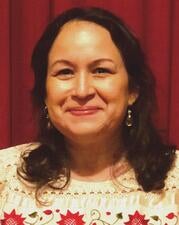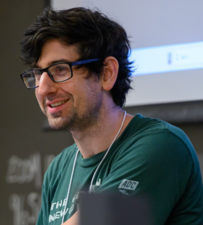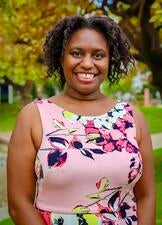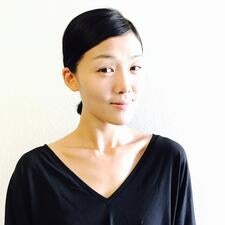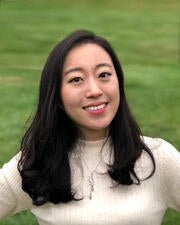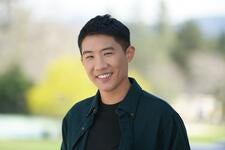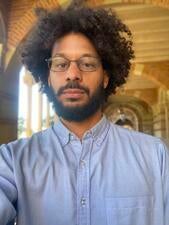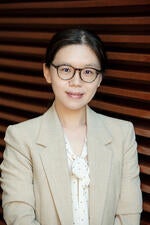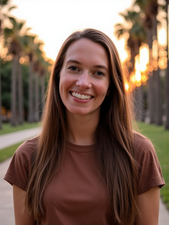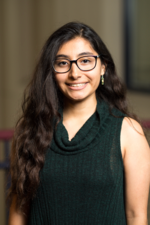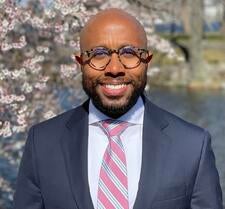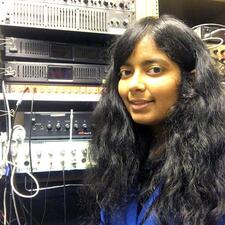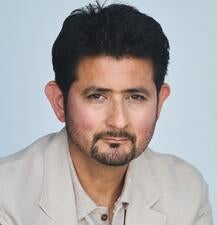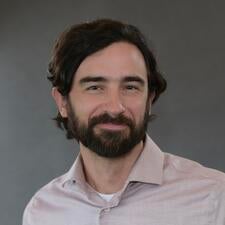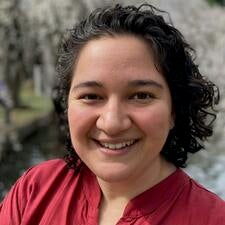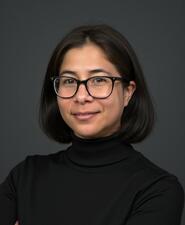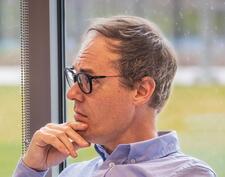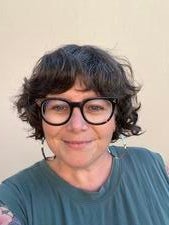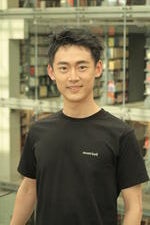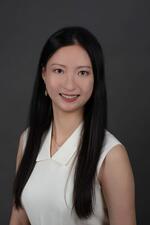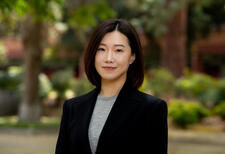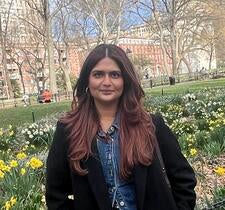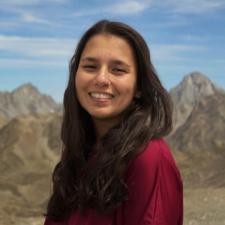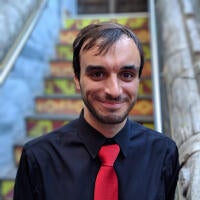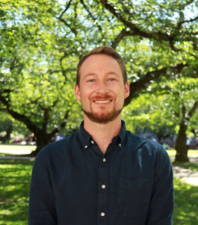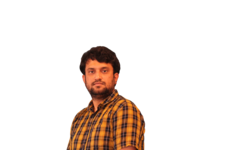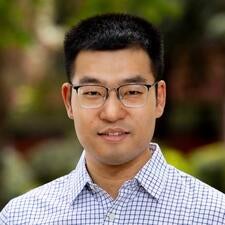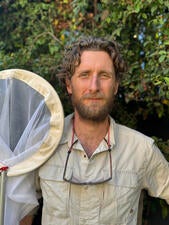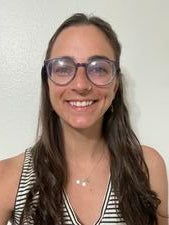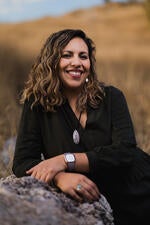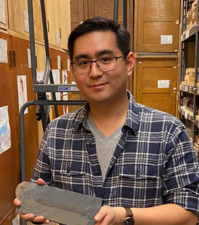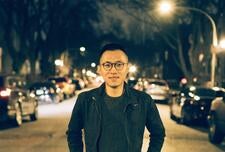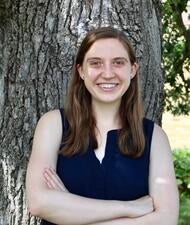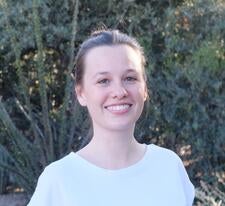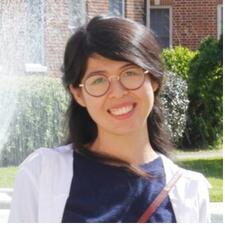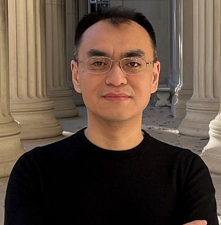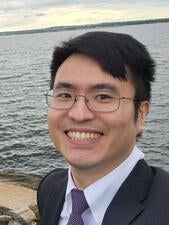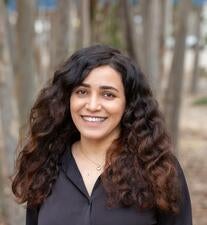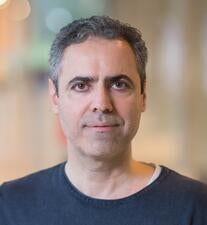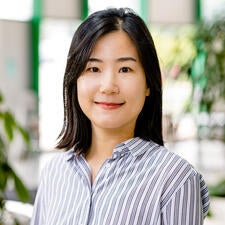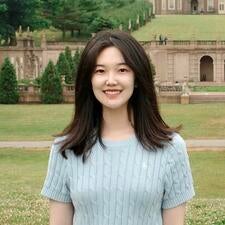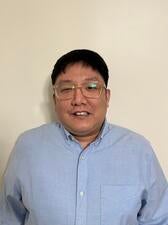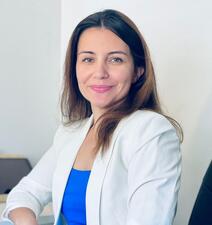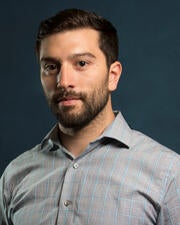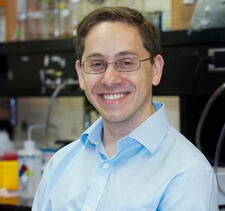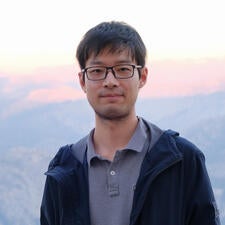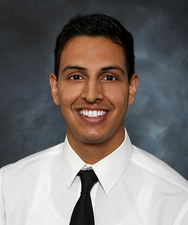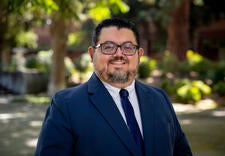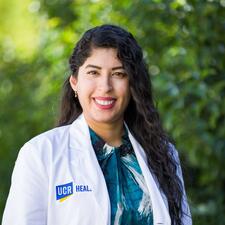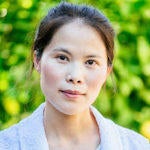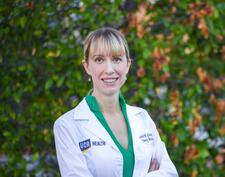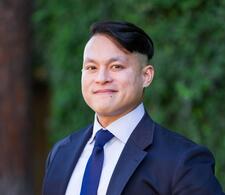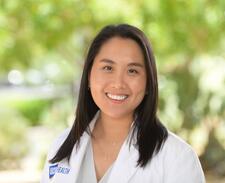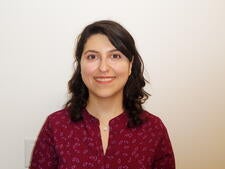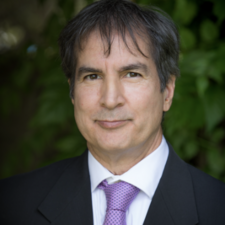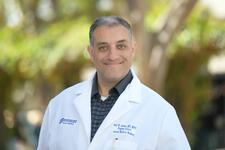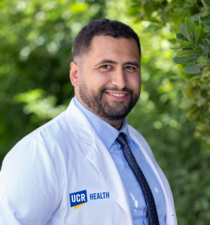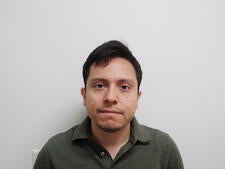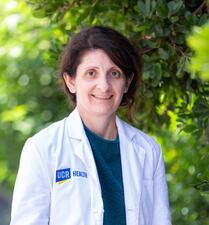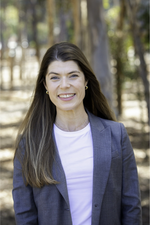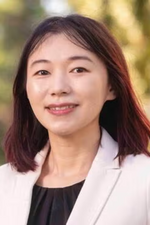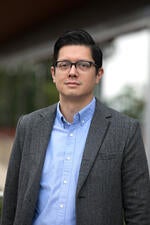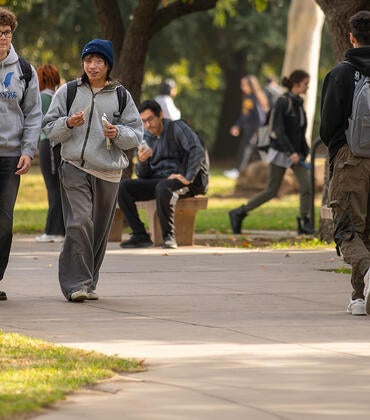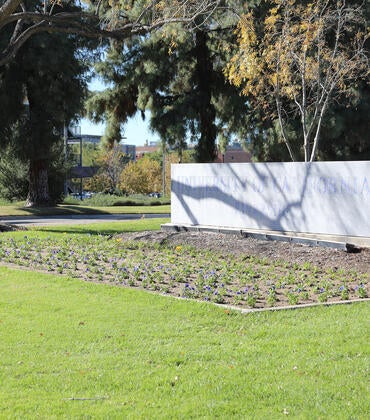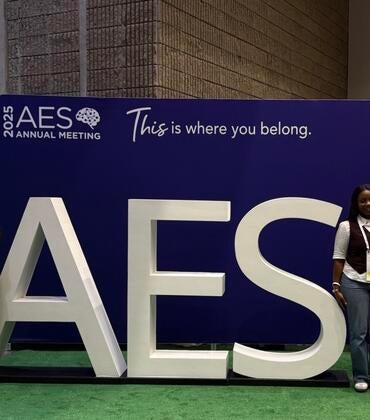UC Riverside welcomed 73 new permanent faculty members from a variety of disciplines for the 2025-26 academic year.
The new faculty members offer expertise on a wide range of subjects from natural disaster management to classical and folk Korean dance. Their research topics include the role of deception in influencing people, exploring icy planets in the solar system, and Black music history.
The new group includes researchers from top universities, a former corporate attorney, playwrights, and physicians from a variety of specialties.
Learn more about the new faculty members below:
College of Humanities, Arts, and Social Sciences
Jeffrey Allen, an associate professor of teaching, received his doctorate in economics from the University of Oregon. A native of the Inland Empire, he received his bachelor’s degree in economics from UCR. He previously held positions at Bentley University and Pepperdine University. His research interests encompass economic growth and development, as well as macroeconomic theory.
Jaye Austin Williams, an associate professor in the Department of Black Study, received her doctorate from a joint program in drama and theatre at UC Irvine and UC San Diego. She also holds an MFA in dramatic writing from New York University’s Tisch School of the Arts. She had a 30-year career as a director, playwright, actor, and consultant before entering higher education. She previously was an associate professor and chair of the Department of Critical Black Studies at Bucknell University. Williams’ research and applied practice theorize the intricate ways in which theater, drama, and cinema articulate Blackness.
Fiona Connor, an assistant professor of art, received her bachelor’s of fine arts from the University of Auckland’s Elam School of Fine Arts, a bachelor’s degree in history from UC San Diego, and an MFA from the California Institute of the Arts. A visual artist, her work focuses on the social and psychological life of the object, the politics of camouflage and mimesis, and the ethics and aesthetics of the built environment.
Diego Esparza, an associate professor of teaching in political science, received his master’s and doctoral degrees in political science from UCR. He was previously an associate professor at the University of North Texas and assistant professor at the Naval Postgraduate School. His research examines policing, public security reform, and civil–military relations in Latin America. Esparza has regularly presented to the Department of the Navy, the Center for Civil–Military Relations, and the Center for Homeland Defense Studies on intelligence, civil–military relations, national security, and Latin American politics.
Cristina Gomez-Vidal, an assistant professor in the Department of Society, Environment, and Health Equity, received her doctorate from UC Berkeley’s School of Social Work. An interdisciplinary scholar whose work bridges health, place, and governance, her research examines how government structures, policies, and processes shape health disparities, political agency, and community vulnerability to environmental and climate-related threats. She focuses on unincorporated communities with limited political representation that are often overlooked in political and media discourse. Gomez-Vidal brings extensive experience in community engagement with an aim to strengthen procedural justice and community-centered policy solutions. She joined the faculty in January.
.
Brian Haas, an acting assistant professor of teaching, received his doctorate in philosophy from the University of Southern California. His research aims to provide a better understanding of how people influence each other for better or worse. His primary research project is on deception and other manipulative influences, working at the intersection of ethics, social philosophy, and the philosophy of law. In addition, he has projects in the philosophy of language and metaphysics.
Stephanie Jones, an assistant professor in the Department of Black Study, received her doctorate in sociology from UC Irvine. Her research tackles housing inequality as an anti-Black initiative in Oakland, critically analyzing how housing is racialized and Blackness constructed within its framework. By theorizing dispossession through Black geographies, Jones provides insights into the spatial experiences of Black individuals. She constructs a framework that addresses displacement and takes a scholarly approach to understanding the historical antiblack projects influencing housing crises.
DaEun Jung, an assistant professor of dance, received an MFA in dance from UCLA. A Korean-born, Los Angeles–based movement artist, researcher, and educator, her work includes ancestral and contemporary performance practices. Her research encompasses the practice and repertoire of classical and folk Korean dance, as well as dance composition, movement improvisation, and somatic practices. Jung’s choreographic work has been supported by arts organizations and residency programs including the New England Foundation for the Arts, Roy and Edna Disney/CalArts Theater, Foundation for Contemporary Arts, Korea Foundation, and New Music USA.
Na Yeon Kim, an assistant professor of psychology, received her doctorate in cognitive psychology and neuroscience from Princeton University. Before joining UCR, she was a postdoctoral research associate at the California Institute of Technology. Kim’s research examines how people vary in the way they perceive the world and pay attention, with a focus on how these processes differ in autism spectrum disorder and related clinical conditions. Her lab employs behavioral, eye-tracking, and neuroimaging methods to investigate how basic cognitive capacities, such as sensory processing and attention, support higher-order cognition, including complex social behavior.
Erin Lam, an assistant professor of classics and comparative literature, received their doctorate in classics from UC Berkeley. Lam teaches courses on love and desire in ancient Greco-Roman and contemporary American poetry, framed through queer and feminist studies. They specialize in contemporary American queer of color poetry and art, Latin love elegy, and Greek tragedy. Their research engages in a creative reimagining of societal structures, relationality, temporality, and inheritance. Their current book project theorizes irreverence as a methodology by which contemporary American queer of color artists and writers expand the creative possibilities of interacting with the Greco-Roman literary tradition.
Samuel Lamontagne, an assistant professor of music and cooperative faculty in the Department of Black Study, received his doctorate in ethnomusicology from UCLA. Lamontagne’s research explores Black music histories and their entanglements with Pan-African solidarities, decolonization, and cultural politics. His work interrogates how Black musical practices generate alternative archives, theories, and political imaginaries that unsettle dominant narratives in music scholarship. He is working on a book examining Black Los Angeles music histories through the lens of hip hop’s creative practices. At UCR, he is developing projects where ethnomusicology, Black Studies, and popular music studies intersect. Lamontagne joined the faculty in January.
Angela Ke Li, an assistant professor of media and cultural studies, received her doctorate in media studies from the University of Illinois, Urbana–Champaign. She is a scholar of digital technology and media industries, specializing in China’s digital economies and innovation cultures. She is completing her first book on China’s ride-hailing industry and working on a second book investigating the techno-politics of labor expendability amid the rise of AI. She was previously an assistant professor at the National University of Singapore and held visiting fellowships at Princeton University and the Australian National University.
Colleen O’Briant, an assistant professor of teaching in economics, received her doctorate from the University of Oregon. She uses econometric and machine learning methods to study decision-making amid uncertainty. She develops simulations to compare the strengths and weaknesses of assumptions in each tradition, applying it to analyze how taxi drivers decide where to seek passengers. More broadly, she is interested in combining insights from econometrics and machine learning to more powerfully and accurately model economic behavior. She was previously a visiting assistant professor at the University of Arkansas.
Holly O’Rourke, an associate professor of psychology, received her doctorate from Arizona State University. A quantitative psychologist, she focuses on the intersection of quantitative methodology and the social sciences by developing and assessing statistical models to answer real-world questions and address analytic issues in psychology. Her recent work includes incorporating ideographic approaches with machine learning techniques to create profiles of biobehavioral and health traits that can predict a variety of behavioral theories. She was previously an assistant professor at Arizona State University and a core scientist in its collaboration with the Phoenix Bioscience Core. O’Rourke joined the faculty in January.
Bernardette Pinetta, an assistant professor of psychology, received her doctorate from the University of Michigan’s combined education and psychology program. Growing up in Los Angeles, she witnessed inequities in the educational system for communities of color and the need for culturally relevant and social justice-oriented education. An interdisciplinary scholar, she weaves together theories from education, psychology, and political science to contextualize how youth of color develop their ethnic-racial identity and how such views serve as key mechanisms for their orientation toward social justice. She partners with schools, organizations, and young people to cultivate learning environments that are culturally affirming and consciousness-raising.
Will Pruitt, an assistant professor of ethnic studies, received his doctorate in African American studies from Harvard University. Pruitt is a scholar of 20th and 21st century U.S. literature and culture with expertise in Black radicalisms, Black feminism, and Black queer studies. His work compares epistemologies of progress, regress, and stagnation towards racial equality and justice. He is working on a book about the meaning of a Black U.S. president and debates that raged around the Compromise of 1877 and the Voting Rights Act of 1965.
Deepa Ramamurthy, an assistant professor of psychology, received her doctorate in neuroscience from UC Davis. As a systems neuroscientist, she investigates how past experiences shape perception and action. She studies how recent experiences guide attention during sensory processing, with the goal of uncovering the roles of distinct cell types and neural circuit motifs in attention and their dysfunction in neuropsychiatric disease models. Her research combines quantitative behavioral and computational modeling approaches with cell type–specific tools to reveal how brain representations are dynamically reshaped by experience to support flexible behavior.
Ricardo Rocha, an assistant professor in the Department of Hispanic Studies, received his doctorate in theatre and drama with an emphasis in Latin American Studies from UC Irvine and UC San Diego. He specializes in Latinx, Afro-Latinx, and Chicanx theater and film, bilingual performance practices, 19th century U.S. theater, and Spanish Golden Age drama. Rocha has decades of acting and directing experience, staging bilingual adaptations in multiple languages. He is producing and performing in the forthcoming “Splendor and Death of Joaquín Murieta” by Pablo Neruda, which informs his book project, “Selling the Sensation,” on Latin culture in early U.S. theatre.
Juan Manuel Rubio, an assistant professor of history, received his doctorate in history from UC Irvine. A scholar of capitalism, labor, and the environment, his work focuses on the history of the mining industry and the struggles of those touched by its environmental legacy. He also researches the present-day impacts of the mining industry on disadvantaged communities. He has conducted research on the sources of lead contamination in Southern California and produced several public media projects linking the issue of lead in the soil with histories of capitalism, corporate science, and environmental racism.
Elena Sesma, an assistant professor of anthropology, received her doctorate in anthropology from the University of Massachusetts, Amherst. A historical archaeologist, her research focuses on sites of slavery and emancipation, blending ethnography and archaeology to understand how communities relate to historic spaces. Her current book project explores archaeological ethnography of a 19th century plantation in the Bahamas. Sesma previously was an assistant professor of anthropology at the University of Kentucky where she developed a campus project documenting historic cemeteries and researched a post-emancipation homesite in Appalachia.
Andrea Silva, an assistant professor of teaching in political science, received her doctorate in political science from UCR. Her research centers on immigration, federalism, and racial and ethnic politics in the United States. She studies how state institutions and policy tools shape immigrant incorporation, trust in government, and local food environments for immigrants and communities of color. Silva is a co-author of a book on the presidency and immigration policy and has a forthcoming book on how initiatives and referendums affect immigration policy. Silva was previously a faculty member at the University of North Texas and associate director of the Latino and Mexican American Studies Program.
Todd Sorensen, an associate professor of teaching in economics, received his doctorate in economics at the University of Arizona. He rejoined UCR after beginning his career at the campus 11 years ago. He went on to teach at the University of Nevada, Reno, and UC Merced. A labor economist, his research examines labor markets controlled by one dominant business where firms set wages as well as minimum wage and union impacts.
Christina Torres, a professor of anthropology, received her doctorate in anthropology from UC Santa Barbara. A bioarchaeologist, her research focuses on how one’s physical body intersects with society and culture. She studies body modifications and patterns of violence and the potentially substantial and indelible marks these leave on the skeleton. Within the frameworks of mobility and inequality she studies how the body maintains evidence of the customs of populations in different social spheres and environments. She previously taught at UC Merced.
Han Wang, an assistant professor of economics, received his doctorate in economics from the Ohio State University. He studies microeconomic theory, with research interests in information economics and mechanism design. His research explores how contracts can be designed to incentivize researchers to conduct costly experiments.
Bohan Ye, an assistant professor of teaching in economics, received her doctorate in economics from the University of Arizona. Her teaching and research center on microeconomic theory, game theory, and experimental economics, with a particular focus on trust dynamics, emotional responses in communication, and decision-making behavior. She was previously an assistant professor of economics at the University of Southern Indiana.
College of Natural and Agricultural Sciences
Yifan Dong, an assistant professor of physical chemistry, received her doctorate in chemistry from Imperial College London and completed a postdoc at the National Renewable Energy Laboratory. Her research group develops versatile ultrafast spectroscopy platforms, spanning optical to terahertz (THz) frequencies, to probe charge and spin dynamics in emerging semiconductors. By bridging fundamental spectroscopy with materials design, her team seeks to reveal the mechanisms that enable efficient energy conversion and spin control in next-generation optoelectronic and spintronic devices.
Pooja Flora, an assistant professor in the Department of Molecular, Cell and Systems Biology, received her doctorate in biological sciences from the University at Albany, SUNY. She trained as a postdoctoral fellow at the Icahn School of Medicine at Mount Sinai. Her research focuses on the role of epigenetic and chromatin-based mechanisms in regulating epithelial stem cell function and tissue longevity. Her lab uses comparative and multi-omics approaches to uncover how conserved chromatin regulators safeguard cell identity, regeneration, and long-term tissue health.
Ludmila Fonseca Teixeira, an assistant professor of economic geology, received her doctorate from ETH Zurich in Switzerland. Her research focuses on understanding the genetic processes and conditions that control the concentration (or absence) of critical minerals in magmatic rocks, particularly those of high-silica composition. She has worked as a postdoctoral fellow at the Smithsonian National Museum of Natural History. She will join the faculty in April 2026.
Tom Gannon, an assistant professor of mathematics, received his doctorate from the University of Texas at Austin. His work applies algebraic geometry to study questions that arise in mathematical physics. Prior to joining UCR, he was an assistant adjunct professor at UCLA.
Fabian Klenner, an assistant professor of planetary sciences, received his doctorate from Freie Universität Berlin in Germany. He has applied his research around icy ocean worlds in the solar system in planning for various space missions. His research group combines laboratory experiments, computer simulations, and spacecraft observations to address astrobiological questions about extraterrestrial geochemical processes and the detection of life beyond Earth. He will join the faculty in December.
Salil Koner, an assistant professor of statistics, received his doctorate in statistics from North Carolina State University, Raleigh. Before joining UCR, he completed a postdoctoral fellowship at Duke University. His research focuses on uncertainty quantification and valid inference for complex, high-dimensional clinical trajectories and neuroimaging data, with applications to aging disorders such as Alzheimer’s and Parkinson’s diseases.
Suqi Liu, an assistant professor of statistics, received his doctorate from Princeton University. His research interests span the theoretical foundations and practical applications of probability, statistics, machine learning, and data science. He focuses on complex structured health data, including biomedical networks, genomic sequences, and clinical notes.
Zachary MacDonald, an assistant professor of conservation genomics and biodiversity in the entomology department, received his doctorate in ecology from the University of Alberta. His research examines ecological and evolutionary mechanisms that structure biodiversity in space and time, focusing on cryptic diversity, speciation, and insect conservation across western North America. His lab aims to identify and document hidden diversity , clarify processes shaping genetic variation, and translate these insights into conservation. MacDonald’sHis long-term goal is to build comprehensive multispecies genomic datasets for insects, creating tools to guide biodiversity protection across North America and beyond.
Lindsay McCulloch, an assistant professor of teaching, received her doctorate in ecology and evolutionary biology from Brown University. Her research focuses on plant-microbe interactions, biogeochemical cycling, tropical forest restoration, and plant-soil dynamics. She has studied the environmental factors that influence plant-microbial interactions in tropical rainforests and researched seed-fungal interactions in Panama.
Adriana Romero-Olivares, an assistant professor in the Department of Evolution, Ecology, and Organismal Biology, received her doctorate in biological sciences from UC Irvine. She investigates how fungi respond to environmental stress and how these responses influence our ecosystems and society. Her research integrates experimental ecology, traditional microbiology, and genomics to understand and predict ecosystem resilience in a changing climate. She was previously an assistant professor at New Mexico State University. She will join the faculty in January.
Karma Nanglu, an assistant professor of evolutionary paleobiology in the Department of Earth and Planetary Sciences, received his doctorate in ecology and evolutionary biology from the University of Toronto. His research focuses on the early diversification of animal life, as recorded by fossils with exceptional soft-tissue preservation. He does so through specimen-based research, integrating field work, museum collections, and quantitative methods. He also studies the broader ecosystems in which these animals evolved through the lens of community ecology.
Pei Su, an assistant professor of biochemistry, received his doctorate in analytical chemistry from Purdue University. His research is at the interface of analytical chemistry, mass spectrometry, instrumentation, bioinformatics, and protein biochemistry. At UC Riverside, he will be leading the Laboratory of Integrative Proteoform Biology to study how cellular metabolism shapes the immune system.
Morgan Thompson, an assistant professor of entomology, received her doctorate from Texas A&M University. Her research integrates chemical, molecular, and community ecology to understand plant-insect interactions. She examines how plants defend against herbivores and their effects on surrounding ecological communities. Her research reveals sustainable and environmentally friendly strategies for altering insect pest behavior and enhancing plant protection in natural and agricultural ecosystems. She will join the faculty in January.
Joana Voigt, an assistant professor of planetary science, received her doctorate in planetary sciences from the University of Arizona's Lunar and Planetary Laboratory. Her research focuses on effusive volcanism on Earth and Mars, and the interactions between water and rock within volcanic terrains. Her work aims to clarify the relationship between eruption dynamics and the characteristics of surfaces and shallow sub surfaces of effusive eruptions. Her research employs methodologies including orbital remote sensing techniques and instruments, unoccupied aircraft systems and field observations, particularly in terrains similar to Martian environments. She will join the faculty in January.
Yue Jane Wu, an assistant professor of chemistry, received her doctorate in chemistry and biochemistry from the Georgia Institute of Technology. She completed her postdoctoral fellowship at Harvard University, where she integrated nanodevice fabrication, optical imaging, and single-cell omics to develop innovative approaches for studying cellular heterogeneity. Wu’s group aims to advance high-throughput bioanalytical chemistry by creating optical and molecular barcoding technologies that connect high-content imaging with single-cell analysis. They seek to uncover new insights into immune cell function, genetic perturbation responses, and complex biological systems through interdisciplinary methods spanning analytical chemistry, materials science, and systems biology.
Qiguo Yu, an assistant professor in the Department of Botany and Plant Sciences, received his doctorate in plant biology from Rutgers University. He completed postdoctoral training at Massachusetts Institute of Technology. His research focuses on engineering plants, notably the chloroplast organelle, with an emphasis on developing new genetic tools and strategies for engineering complex pathways (such as carbon fixation, nitrogen fixation) in plant plastids.
Jeffrey Zhang, an assistant professor of statistics, received his doctorate in operations research and engineering from Princeton University. He studied solutions to optimization problems and now researches higher order optimization and biomedical applications for large language models in mental health and hospital operations.
Marlan and Rosemary Bourns College of Engineering
Fatemeh Asgarinejad, an assistant professor of teaching in electrical and computer Engineering, received her doctorate from UC San Diego in a joint program with San Diego State University. Her research lies at the intersection of computer science and electrical engineering education, with a focus on engaged and continuous learning. Asgarinejad leverages machine learning, data science, and mathematics to address real-world problems.
Ahmad M. Foroutaghe, an assistant professor of teaching in mechanical engineering, received his doctorate in mechanical engineering from the University of British Columbia. He joined the faculty there, teaching mechanical engineering and manufacturing, including mechanical design, vibrations, controls, mechanics of materials, and manufacturing processes. His courses explore applications of artificial intelligence and machine learning in structural dynamics and manufacturing.
Eunjeong Hyeon, an assistant professor of mechanical engineering in the Center for Environmental Research and Technology (CE-CERT), received her doctorate in mechanical engineering from the University of Michigan, Ann Arbor. Her research aims to advance transportation systems, enhancing safety, sustainability, and efficiency. Hyeon previously worked at Argonne National Laboratory as a principal research engineer, developing energy-efficient, cooperative driving automation control and communication systems, digital twin models for hardware-in-the-loop testing, and on-road testing. Her research interests focus on the perception, planning, and control of connected automated vehicles.
Bingyao Li, an assistant professor of computer science and engineering, received her doctorate in computer science from the University of Pittsburgh. Her research interests lie in advanced computer architectures, high-performance computing systems, and emerging parallel applications, with a specific focus on the graphics processing unit ecosystem from architecture to application.
Jay Lim, an assistant professor of computer science and engineering, received his doctorate in computer science from Rutgers University. His research interests include program verification and synthesis with a focus on numerical applications. Lim was previously a lecturer at Yale University for four years.
Arameh (Amy) Masoumi, an assistant professor of teaching in bioengineering, received her doctorate in polymer chemistry from the University of Mazandaran in Iran. With a background in tissue engineering, regenerative medicine, and biomaterials, her research focuses on developing innovative hydrogel-based platforms to promote tissue repair and regeneration, particularly for wound-healing applications. Masoumi brings active learning strategies and hands-on experiences into the classroom. Through her teaching and collaborative research efforts, she bridges fundamental science with translational applications to advance both education and innovation in bioengineering.
Salvador Mayoral, an associate professor of teaching in mechanical engineering, received his doctorate in mechanical and aerospace engineering from UC Irvine. He previously served as an associate professor at California State University, Fullerton, and a faculty advisor for the Baja and Formula Society of Automotive Engineers teams. Salvador Mayoral’s research interests span the areas of ground vehicle aerodynamics, wall-stress modeling, and the hydrodynamics of marine life. He will join the faculty in January.
Howard Salis, a professor of chemical and environmental engineering, received his doctorate in chemical engineering from the University of Minnesota. His research lab develops predictive models, optimization algorithms, and design platforms to rationally engineer biomolecules and organisms, combining biophysics, massively parallel experiments, and machine learning. Salis’s recent applications include creating bacteria that detect TNT in soil, RNAs that detect human biomarker proteins, and bacteria that convert low-value feedstock into high-value chemical products. His design platform is used by over 15,000 researchers who have designed over one million genetic systems.
Zhouxing Shi, an assistant professor of computer science and engineering, received his doctorate in computer science from UCLA. His research focuses on machine learning, particularly developing more trustworthy and reliable artificial intelligence models across dimensions such as robustness, safety, and verifiable guarantees.
Igor Spasojevic, an assistant professor of electrical and computer engineering, received his doctorate in autonomous systems from the Massachusetts Institute of Technology. He was also a postdoctoral scholar at the University of Pennsylvania. Spasojevic’s research spans numerous aspects of optimization algorithms for robotics, including trajectory planning, active sensing, and autonomous exploration.
School of Business
Scott Ganz, an assistant professor of management, received his doctorate in business administration from Stanford University. Ganz’s research focuses on how organizational politics, hierarchy, and the design of decision-making institutions impact information aggregation, organizational adaptation, and organizational performance. He was previously an associate teaching professor at Georgetown University, an assistant professor at the Georgia Institute of Technology, and a research fellow with the American Enterprise Institute.
Aruhn Venkat, an assistant professor of accounting, received his doctorate in accounting from UC Irvine. His research is focused on business taxation and tax policy—specifically, the effects on labor outcomes, investment, and innovation. He previously taught at University of Texas, Austin’s McCombs School of Business. He also received a law degree from the Boyd School of Law at the University of Nevada, Las Vegas, and is an inactive member of the Nevada Bar Association.
School of Education
Carlos Calderón, an associate professor of teaching and director of the school psychology Ph.D. program, received his doctorate in educational psychology with an emphasis on school psychology from Arizona State University. A bilingual licensed psychologist and nationally certified school psychologist, his experience spans preschool to postsecondary settings in California and Arizona. His scholarship focuses on multilingual and multicultural psychoeducational development. He also provides consulting and training services to school districts, community agencies, universities, and professional organizations in California, Arizona, and Washington. He has served on the Social Justice Committee of the National Association of School Psychologists.
Avriel Epps, an assistant professor of education, received her doctorate in human development from Harvard University. Her work focuses on the intersections of algorithmic bias and identity development across racial and gender spectra. She is a co-founder of AI4Abolition, which promotes open-source tools and AI literacy programs in marginalized communities. Her work has been featured in the Atlantic and the PBS documentary “TikTok, Boom.” She has more than 70,000 followers on Instagram and TikTok with her short form videos receiving over 25 million views. She is the author of “A Kids Book About AI Bias.”
School of Medicine
Michelle Bholat, a clinical professor and chair of the Department of Family Medicine, received her medical degree from UC Irvine, completed residency at Harbor-UCLA Medical Center, and received a master’s of public health in health policy and management from UCLA. She joined UCR from UCLA’s David Geffen School of Medicine, where she was executive vice chair for clinical affairs and vice chair of justice, equity, diversity, and inclusion. Bholat is also co-founder of UCLA’s International Medical Graduate Program and has held leadership roles with the Medical Board of California and the Los Angeles County Board of Supervisors. She sees patients at UCR Health.
Kathy Calderon, a health sciences assistant clinical professor in family medicine, is a board-certified family medicine physician who received her medical degree from UCR. She completed her residency in family medicine at UCLA. Calderon specializes in serving diverse and underserved populations, and is fluent in both English and Spanish, aiding her work in community‐focused primary care. Her clinical interests include women’s health, chronic disease management, preventive care, and improving access and equity in health care. She is a member of the Advancing Clinical Faculty Diversity through Transformative Hiring for Representation, InclusiVity, and Excellence (THRIVE) at UCR SOM program. She sees patients at UCR Health.
Blanca Campos, a health sciences clinical professor of family medicine, received her medical degree from the Universidad Autónoma de Ciencias Medicas de Centro América in San José, Costa Rica, and completed her residency in family medicine at UCLA. She is board certified in family medicine and an advocate for health equity. She is a member of the Advancing Clinical Faculty Diversity through THRIVE program. She sees patients at UCR Health.
Xuecai Ge, an associate professor of biomedical sciences, received her doctorate in neuroscience from Harvard University and completed her postdoctoral training at Stanford University. She started an independent research group at UC Merced before joining UCR. Her research focuses on the role of primary cilia as critical signaling hubs in the developing brain, combining proteomics, advanced microscopy, and genetics to understand how ciliary dysfunction leads to birth defects and neurological disorders.
Crystal Glassy, a health sciences clinical assistant professor of family medicine, received her doctor of osteopathic medicine degree from Michigan State University and master’s of public health from San Diego State University. Glassy completed her residency in family medicine at UC Irvine, where she served as chief resident. She is board certified by the American Board of Pediatrics and a fellow of the American Academy of Pediatrics. Her clinical interests include mind-body medicine, nutrition, and stress management. She sees patients at UCR Health.
Kevin Gutierrez, a health sciences assistant clinical professor of psychiatry/neuroscience, received his medical degree from Thomas Jefferson University and completed his residency in psychiatry at NYU’s Grossman School of Medicine. At NYU, he led initiatives focusing on race, identity, and mental health equity. He is a member of the Advancing Clinical Faculty Diversity through THRIVE program. He sees patients at UCR Health.
Esther Jun-Ihn, a health sciences assistant clinical professor of pediatrics, received her medical degree from UC Irvine and completed both her general pediatrics residency and fellowship in pediatric hospital medicine at UCLA’s Mattel Children’s Pediatrics Residency Program. A board‐certified pediatrician and pediatric hospitalist she held various clinical and leadership roles at UCLA, where she developed her skills in hospital-based pediatric care. Her professional interests include quality improvement, hospital medicine for children, and serving community health through compassionate, patient‐centered care. She sees patients at UCR Health.
Mahsa Khayat-Khoei, a health sciences assistant clinical professor of psychiatry/neuroscience, received her medical degree from Shahid Beheshti University of Medical Sciences in Iran and completed her residency in neurology at the University of Texas Health Science Center in Houston. She joined UCR from Mass General Brigham, where she completed her fellowship in neuroimmunology and multiple sclerosis. She is a member of the THRIVE program. She sees patients at UCR Health.
Renee Moreno, a health sciences assistant clinical professor in pediatrics, received her medical degree from UCR and completed her pediatrics residency at UC Irvine’s Children’s Hospital of Orange County. She provides family-centered care to children and adolescents, especially in underserved areas. Her clinical interests include adolescent mental health, preventive pediatric care, and supporting wellness through a holistic approach. She sees patients at UCR Health.
Robert Rodriguez, a professor of medicine and associate dean of clinical research, received his medical degree from Harvard Medical School, completed a combined emergency medicine/internal medicine residency at UCLA Medical Center, and a fellowship in critical care medicine at Stanford University Medical Center. He joined UCR from UC San Francisco, where he was a professor of emergency medicine, vice chair of research, and research director for the SJV PRIME+ program. Rodriguez has served as principal investigator on multiple grants, with research focused on trauma, infectious diseases, public health, and critical care.
Paul Salama, program director of the Internal Medicine Residency Program and a health sciences associate clinical professor in internal medicine, received his medical degree from Emory University and completed his internal medicine residency at the Los Angeles General Medical Center. He is board-certified in internal medicine and commonly treats conditions such as pneumonia, pancreatitis, UTIs, etc. He spearheaded programs such as the Next Day Clinic, bridging the gap between patient and provider. He sees patients at UCR Health.
Ramy Sadek, a health sciences assistant clinical professor in internal medicine, received his medical degree from Oregon Health & Science University. A physician with a subspecialty in cardiology, he completed internal medicine residency at UCLA-Olive View and then pursued a cardiology fellowship at Southwest Healthcare Medical Education Consortium. Sadek is passionate about preventive cardiology, advanced cardiac imaging, and medical education. He sees patients at UCR Health.
Edward Troncoso, a health sciences assistant clinical professor in internal medicine, received his medical degree from Loyola Stritch School of Medicine and completed his internal medicine residency at the NYU Langone Hospital in Brooklyn, NY. Troncoso began his career in medicine by volunteering as a Spanish-language interpreter in community clinics and later taught medical Spanish to peers in medical school. His interests include a commitment to underserved communities, advancing medical education, and improving access to care for Spanish-speaking patients. He is a member of the THRIVE program. He sees patients at UCR Health.
Alia Tuqan, a health sciences clinical professor of internal medicine, received her medical degree from UC Irvine and completed her residency at Cedars-Sinai Medical Center. A board-certified geriatrician, she previously served as the medical director of the UC Davis Healthy Aging Clinic and its Alzheimer’s and Dementia Care Program. She was the program director of the Geriatrics Fellowship Program at UC Davis, where she trained the next generation of geriatricians. She sees patients at UCR Health.
School of Public Policy
Jennifer Gaudette, an assistant professor of public policy, received her doctorate in political science from UC San Diego. Formerly a corporate attorney in New York City and Southern California, she draws upon her legal career in her research and teaching. Gaudette studies how interest groups and economic elites interact with local political institutions and elections. Her dissertation analyzed interest group endorsements in mayoral elections with a focus on police unions.
Wei Guo, an assistant professor of public policy, received her doctorate in agricultural and resource economics from UC Berkeley. Her research focuses on topics including climate adaptation, natural disaster management, public finance, and visual aesthetics in urban planning. Her work is organized around themes that include the economic and equity implications of natural disaster policies, and the role of the sharing economy in enhancing climate adaptation. In her work, Wei employs a combination of econometric models, structural estimations, and advanced spatial analysis techniques.
Stan Nguyen Oklobdzija, an assistant professor of public policy, received his doctorate in political science from UC San Diego. Oklobdzija's research focuses on state and local politics with a particular interest in housing policy. He has also used computational social science tools to answer questions about campaign finance and election law in the United States. He was previously a visiting assistant professor at UCR and an assistant professor at Tulane University where he was also director of the Center for Public Policy Research.
